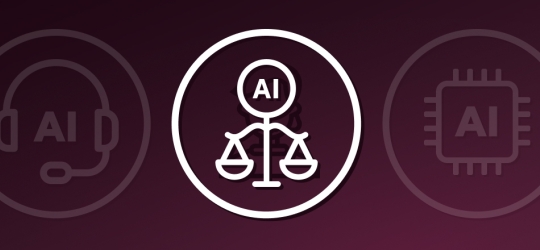Ethical AI in Contact Centers.

Ethical AI in Contact Centers
As AI becomes ingrained in contact center operations, business leaders must address a critical question: Are we using AI responsibly and ethically? Deploying AI in customer interactions comes with a set of ethical considerations that cannot be overlooked – from algorithmic bias to transparency to data privacy.
Bias and Fairness
AI systems learn from data, and if that data contains biases, the AI can inadvertently perpetuate or even amplify them. Contact centers must ensure their AI is trained on diverse, representative data and continually tested for biased outcomes. Ethical AI deployment means setting up processes to mitigate bias, such as regular audits of AI decisions and incorporating fairness metrics into performance evaluation.
Transparency with Customers
Customers have the right to know whether they're talking to a human or a bot. Many companies now have bots introduce themselves as virtual assistants and clearly offer an option to reach a human. Hiding the fact that an agent is AI can lead to a sense of betrayal if the customer finds out, especially if the bot didn't handle their issue well.
Data Privacy and Security
Contact centers handle sensitive personal data – addresses, credit card numbers, medical information. AI systems often require large amounts of data to train and operate, which might tempt organizations to retain more customer data or share data between departments. It's crucial to remain compliant with privacy regulations like GDPR, CCPA, and industry-specific rules.
Accountability and Governance
Organizations should establish clear governance for AI systems. This includes monitoring AI decisions and outcomes, and having humans in the loop for oversight, especially for high-stakes decisions. Many businesses are now adopting the concept of Responsible AI, which is a governance approach to ensure AI's development and use follows ethical best practices. Key principles typically include:
- Fairness
- Transparency
- Accountability
- Privacy
- Security
Customer Consent and Choice
Not every customer wants to interact with AI. Some may prefer a human even for simple issues, due to personal comfort or accessibility reasons. Good practice is to always provide an "off-ramp" – a clear way to reach a human if desired. This respects the customer's agency and builds more goodwill toward AI implementations.
In summary, deploying AI in contact centers is not just a technical endeavor; it's a moral one. Business leaders should champion ethical AI use just as strongly as they champion efficiency and cost-savings. The payoff is twofold: you minimize the risk of harm or backlash, and you establish your brand as trustworthy and customer-centric.
Best Practices for Implementation
To ensure ethical AI deployment in contact centers, organizations should follow these key practices:
- Regular auditing of AI systems for bias and fairness
- Clear disclosure policies about AI use in customer interactions
- Comprehensive data protection and privacy frameworks
- Ongoing training for human agents who work alongside AI
- Documented escalation procedures for AI-related issues
By following these practices and maintaining a strong ethical foundation, contact centers can successfully integrate AI while preserving trust and delivering superior customer service.